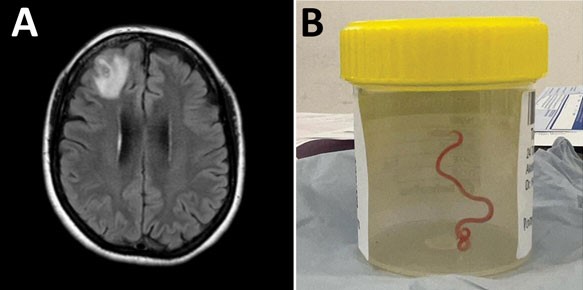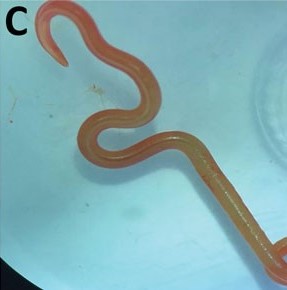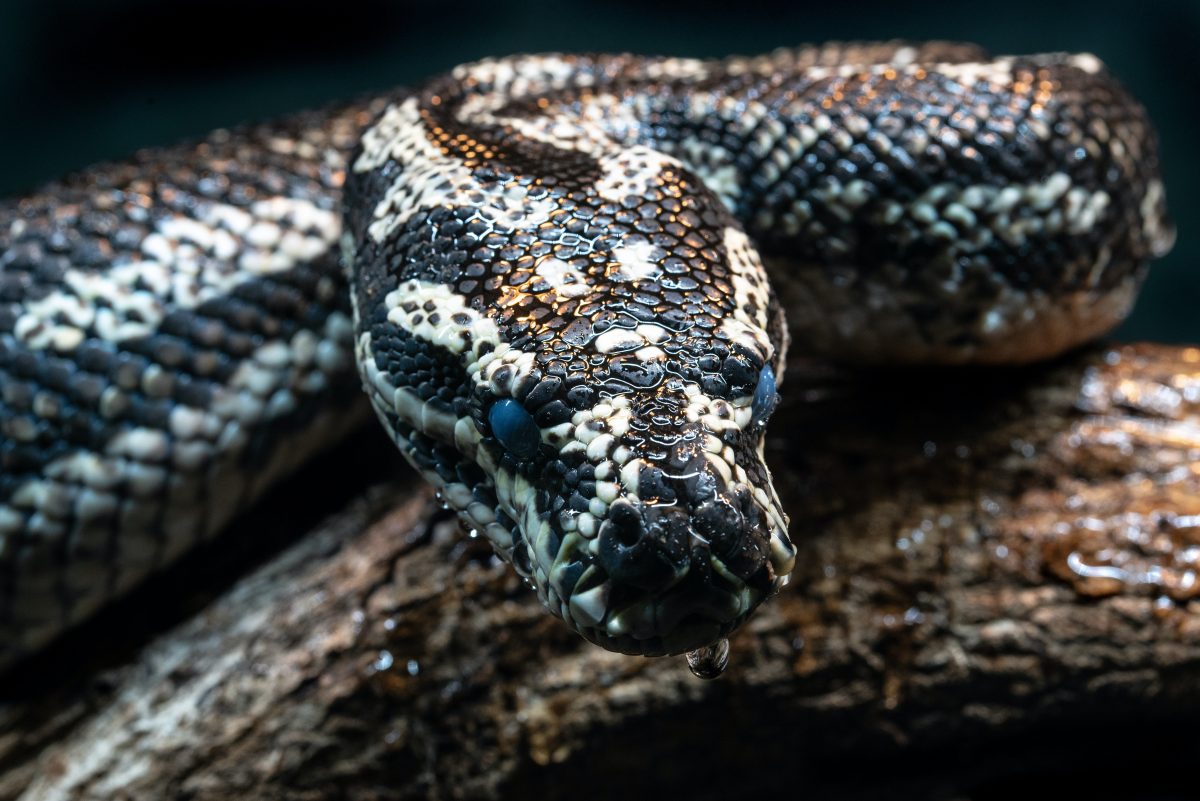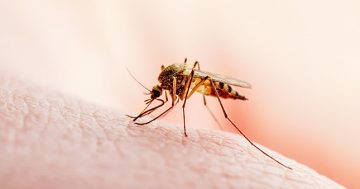
The worm was found in the woman’s brain. Photo: ANU.
A 64-year-old woman from south-eastern NSW has become a medical wonder after a neurosurgeon at the Canberra Hospital discovered an 8cm-long worm in her brain.
The patient was first admitted to her local hospital in late January 2021 after suffering three weeks of abdominal pain and diarrhoea, followed by a constant dry cough, fever and night sweats. By 2022, her list of symptoms grew to include forgetfulness and depression.
She was referred to Canberra, where two MRI scans revealed movement or a growth in a part of her brain, prompting neurosurgeon Dr Hari Priya Bandi and her team to investigate.
They never expected to find a live, pink-coloured worm measuring 8 cm long.
“Oh my God, you wouldn’t believe what I just found in this lady’s brain – and it’s alive and wriggling,” Dr Bandi told her colleague.
A hurried consultation with scientists and infectious diseases experts from the ANU, Canberra Health Services, and CSIRO – among other organisations – revealed it to be the “first-ever human case” of the Ophidascaris robertsi roundworm, a parasite normally found only in carpet pythons.

The roundworm measured 8 cm long. Photo: ANU.
“To our knowledge, this is also the first case to involve the brain of any mammalian species, human or otherwise,” leading ANU and Canberra Hospital infectious disease expert Associate Professor Sanjaya Senanayake said.
“Normally, the larvae from the roundworm are found in small mammals and marsupials, which are eaten by the python, allowing the life cycle to complete itself in the snake.”
It’s thought the woman picked up the roundworm when collecting a type of native grass, Warrigal greens, beside a lake near where she lived – and a carpet-python hotspot. She probably became an accidental host when she used the grass in cooking.
Once inside the digestive system, the roundworm lays eggs that hatch into larvae. The larvae then enter the bloodstream and are distributed to all parts of the body. In the woman’s case, it’s thought there are also larvae in her liver.
Dr Senanayake said it was “never easy or desirable to be the first patient in the world for anything”, but the case highlighted the growing danger of diseases and infections passing from animals to humans.
“Of the emerging infections globally, about 75 per cent are zoonotic, meaning there has been transmission from the animal world to the human world,” he said.
“This Ophidascaris infection does not transmit between people, so it won’t cause a pandemic like SARS, COVID-19 or Ebola. However, the snake and parasite are found in other parts of the world, so it is likely that other cases will be recognised in coming years in other countries.”

The carpet python is the roundworm’s normal host. Photo: David Clode.
Canberra Hospital’s Director of Clinical Microbiology Karina Kennedy said people should take extra care when gardening or foraging for food where wild animals might be present.
“People who garden or forage for food should wash their hands after gardening and touching foraged products,” she said.
“Any food used for salads or cooking should also be thoroughly washed, and kitchen surfaces and cutting boards wiped down and cleaned after use.”
The patient is recovering well but continues to be monitored by the team of infectious diseases and brain specialists in the Canberra Hospital.
The researchers’ full findings were published in the medical journal Emerging Infectious Diseases.
Original Article published by James Coleman on Riotact.







